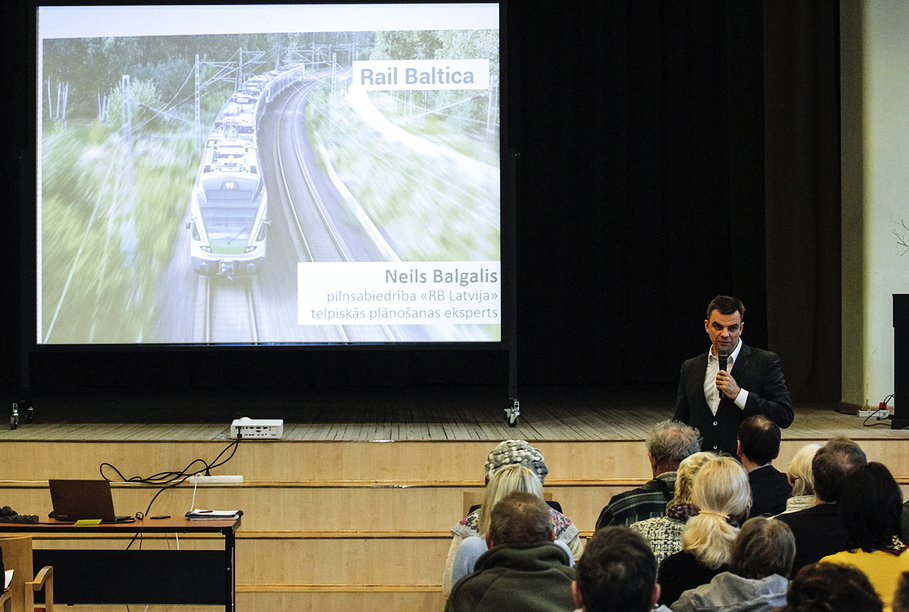On Thursday about 100 people of Garkalne along the Riga-Pskov highway gathered at the county hall for the scheduled town meeting on introducing the Rail Baltica project, the final one of the first phase of public discussion. They posed questions about the exact route of the line and to what extent it would affect the environment in terms of noise and vibrations caused by the high-speed train traffic.
County council chairman Mārtiņš Gunārs Bauze-Krastiņš suggested the project managers move the proposed route off from Garkalne more towards neighboring Ropaži county, where the population density is more sparse. Altogether Garkalne residents had few objections in light of the fact that the route passes through only a brief swath of their administrative territory. The meeting proceeded with very few raised voices or heated arguments, reported national information agency LETA.
Also this week, on Tuesday more than a hundred residents of Zaķumuiža in Ropaži county gathered for a similar meeting, where the primary concerns revolved around Rail Baltica’s impact on the environment. A local government representative asked whether the migration routes of wild animals had been taken into account in planning the line, not to mention the network of forest paths favored by mushroom- and berry-pickers and bicycle riders.
Farmers were interested in the width of proposed tunnels to traverse the tracks, as their equipment includes tractors and other machinery besides regular motor vehicles that might exceed size specifications and immobilize their gear.
Philosophical issues were also posed, such as concern for the animals and trees, not to mention the people to be affected by the future high-speed train.
One particular endangered species that calls Ropaži and Garkalne its prime summer habitat is the European roller, a spectacularly plumed bird which migrates here after wintering in distant south-central Africa by May, and is extremely sensitive to human activity. Project managers claimed that current rail traffic through the area is much noisier and disruptive than the trains in line for Rail Baltica will be, in response to qualms about disturbing the wildlife.
When complete Rail Baltica will provide a new European standard gauge railway line construction in the Baltic countries, which currently still use the old Soviet broad gauge.
The total cost to Latvia is estimated at €1.27bn of a €3.68 price tag for the Baltic stretch of the line, which it is hoped would also run to Warsaw and Berlin. The European Commission would co-finance 85% of the total cost of the project and construction work is due to start in 2016, though the project has been beset by delays from the start.






























